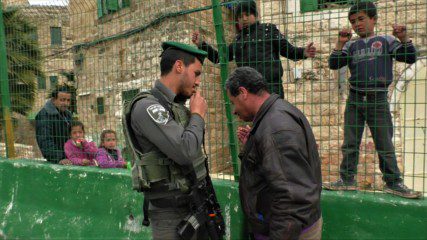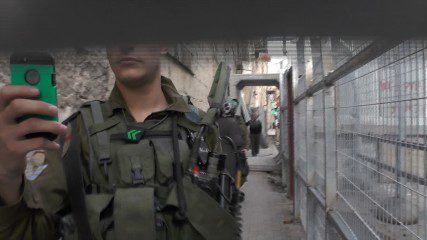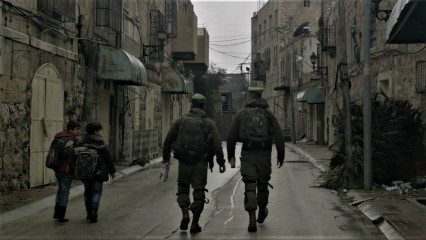The Israeli-Palestinian situation is obviously complex and often controversial. It has been an area of conflict for nearly a century—even before the establishment of the state of Israel. Documentary filmmakers Idit Avrahami and Noam Sheizaf seek to show the Palestinian city of Hebron as a microcosm of what is happening there Israel/Palestine in H2: The Occupation Lab.
Hebron is the largest city in the West Bank. It is home to 250,000 Palestinians. After the 1967 War, it also became the birthplace of the settler movement when a group of Israeli moved to Hebron to claim it as a place for Israelis to live. Today, about 800 Israelis live along a kilometer-long street that leads to the Tomb of the Patriarchs, the site of supposed tombs of Abraham and Sarah, which is sacred to both Jews and Muslims. That street is barricaded and protected by Israeli soldiers.

Although the film touches briefly on a massacre of Jews there in Hebron in 1929, most of the film traces the evolution of the policies that have led to this separation from 1967 to the present. It wasn’t a sudden shift, rather it began with attempts to have people live harmoniously. But there were often provocations that escalated tension between the two communities. The push and shove events, Israeli control of the city increased little by little. It became not just the beginning of the ways Israeli forces often mistreat Palestinians, but also the testing ground for policies that soon spread to other Palestinian areas.
The film shows us a series of walking tours of the city. What is interesting is the themes of the various tours: a Jewish heritage tour, a human rights tour, “End the Silence” tour (former Israel soldiers who object to the way Palestinians are treated), and a right-wing tour that celebrates the murder of a Palestinian by an Israeli soldier. Hebron in many ways serves as a symbol to various political positions.
It is important to note that this film is made by Israeli filmmakers and is mostly told by Israelis. That matters because it makes the case that Palestinians are being unjustly treated even in their own cities. One of the Israelis even calls it (I think correctly) “apartheid”.

As I said, the situation in Israel/Palestine is complex. H2: The Occupation Lab gives us an important perspective. It allows us to hear Palestinian voices as well as Israeli voices who look at what is happening and see that it is the wrong way to treat people. It is also obvious that peace is still a long way off.
H2: The Occupation Lab is available on VOD platforms.
Photos courtesy of Film Movement.





